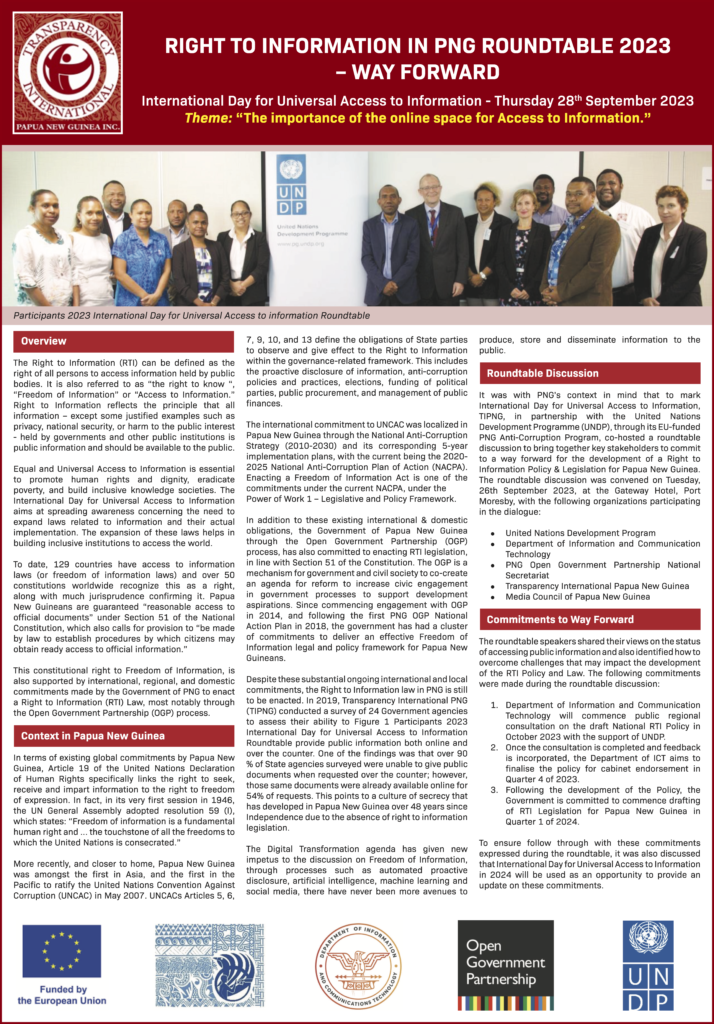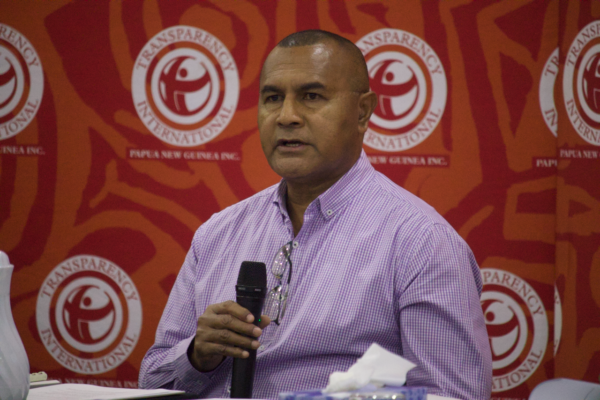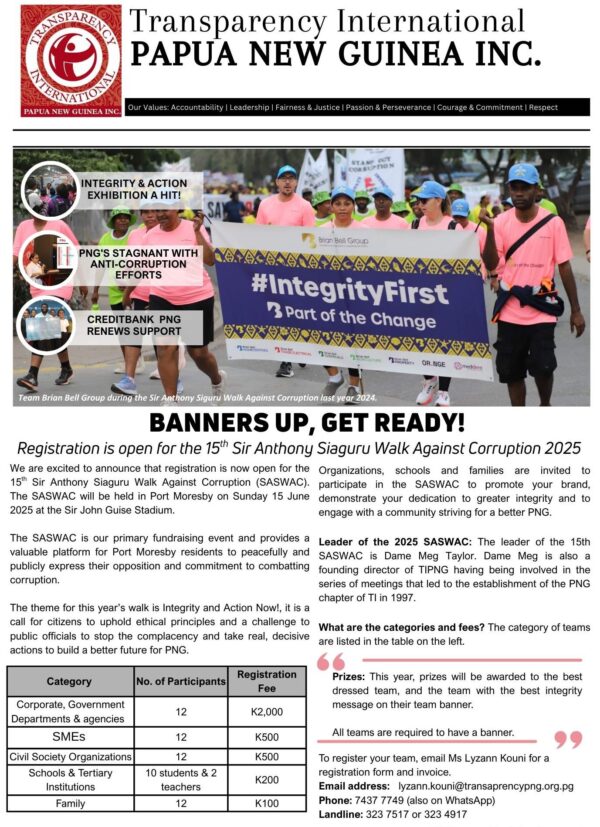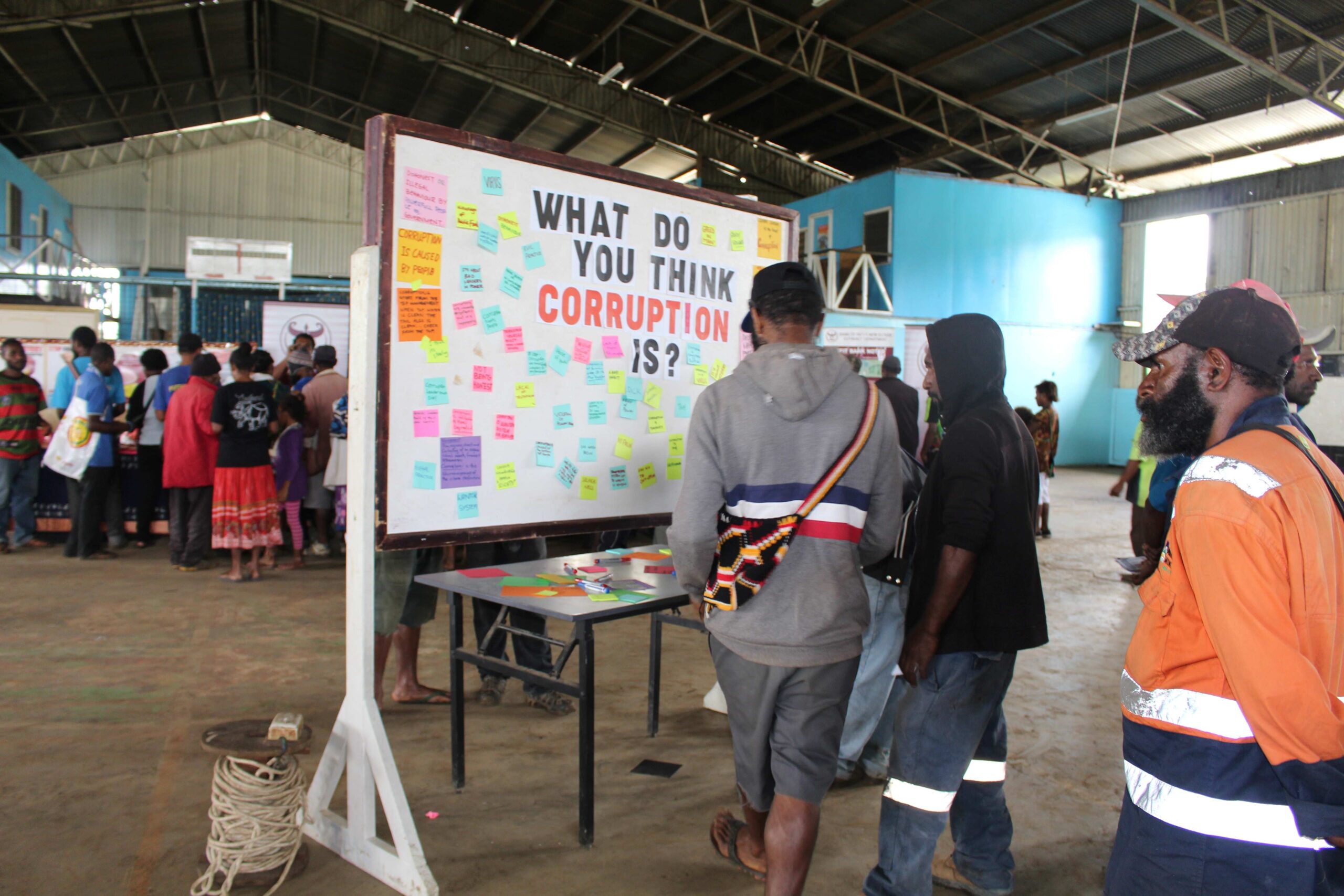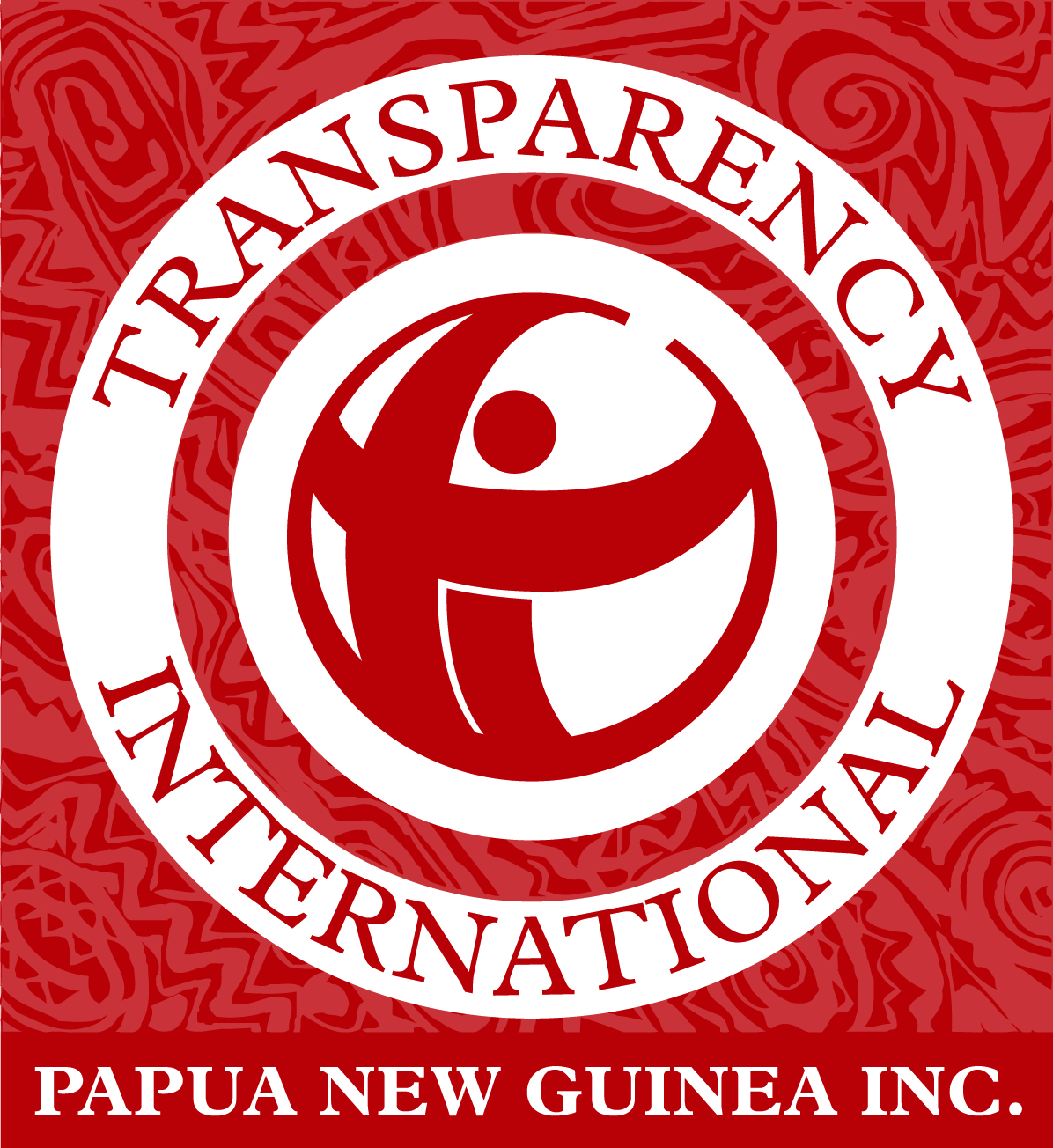International Day for Universal Access to Information – Thursday 28th September 2023
Theme: “The importance of the online space for Access to Information.”
Overview
The Right to Information (RTI) can be defined as the right of all persons to access information held by public bodies. It is also referred to as “the right to know “, “Freedom of Information” or “Access to Information.” Right to Information reflects the principle that all information – except some justified examples such as privacy, national security, or harm to the public interest – held by governments and other public institutions is public information and should be available to the public.
Equal and Universal Access to Information is essential to promote human rights and dignity, eradicate poverty, and build inclusive knowledge societies. The International Day for Universal Access to Information aims at spreading awareness concerning the need to expand laws related to information and their actual implementation. The expansion of these laws helps in building inclusive institutions to access the world.
To date, 129 countries have access to information laws (or freedom of information laws) and over 50 constitutions worldwide recognize this as a right, along with much jurisprudence confirming it. Papua New Guineans are guaranteed “reasonable access to official documents” under Section 51 of the National Constitution, which also calls for provision to “be made by law to establish procedures by which citizens may obtain ready access to official information.”
This constitutional right to Freedom of Information, is also supported by international, regional, and domestic commitments made by the Government of PNG to enact a Right to Information (RTI) Law, most notably through the Open Government Partnership (OGP) process.
Context in Papua New Guinea
In terms of existing global commitments by Papua New Guinea, Article 19 of the United Nations Declaration of Human Rights specifically links the right to seek, receive, and impart information to the right to freedom of expression. In fact, in its very first session in 1946, the UN General Assembly adopted resolution 59 (I), which states: “Freedom of information is a fundamental human right and … the touchstone of all the freedoms to which the United Nations is consecrated.”
More recently, and closer to home, Papua New Guinea was amongst the first in Asia, and the first in the Pacific to ratify the United Nations Convention Against Corruption (UNCAC) in May 2007. UNCACs Articles 5, 6,7, 9, 10, and 13 define the obligations of State parties to observe and give effect to the Right to Information within the governance-related framework. This includes the proactive disclosure of information, anti-corruption policies and practices, elections, funding of political parties, public procurement, and management of public finances.
The international commitment to UNCAC was localized in Papua New Guinea through the National Anti-Corruption Strategy (2010-2030) and its corresponding 5-year implementation plans, with the current being the 2020- 2025 National Anti-Corruption Plan of Action (NACPA). Enacting a Freedom of Information Act is one of the commitments under the current NACPA, under the Power of Work 1 – Legislative and Policy Framework.
In addition to these existing international & domestic obligations, the Government of Papua New Guinea through the Open Government Partnership (OGP) process, has also committed to enacting RTI legislation, in line with Section 51 of the Constitution. The OGP is a mechanismforgovernmentandcivilsocietytoco-create an agenda for reform to increase civic engagement in government processes to support development aspirations. Since commencing engagement with OGP in 2014, and following the first PNG OGP National Action Plan in 2018, the government has had a cluster of commitments to deliver an effective Freedom of Information legal and policy framework for Papua New Guineans.
Despite these substantial ongoing international and local commitments, the Right to Information law in PNG is still to be enacted. In 2019, Transparency International PNG (TIPNG) conducted a survey of 24 Government agencies to assess their ability to Figure 1 Participants 2023 International Day for Universal Access to Information Roundtable provide public information both online and over the counter. One of the findings was that over 90 % of State agencies surveyed were unable to give public documents when requested over the counter; however, those same documents were already available online for 54% of requests. This points to a culture of secrecy that has developed in Papua New Guinea over 48 years since Independence due to the absence of right-to-information legislation.
The Digital Transformation agenda has given new impetus to the discussion on Freedom of Information, through processes such as automated proactive disclosure, artificial intelligence, machine learning, and social media, there have never been more avenues to produce, store, and disseminate information to the public.
Roundtable Discussion
It was with PNG’s context in mind that to mark International Day for Universal Access to Information, TIPNG, in partnership with the United Nations Development Programme (UNDP), through its EU-funded PNG Anti-Corruption Program, co-hosted a roundtable discussion to bring together key stakeholders to commit to a way forward for the development of a Right to Information Policy & Legislation for Papua New Guinea. The roundtable discussion was convened on Tuesday, 26th September 2023, at the Gateway Hotel, Port Moresby, with the following organizations participating in the dialogue:
- United Nations Development Program
- Department of Information and Communication Technology
- PNG Open Government Partnership National Secretariat
- Transparency International Papua New Guinea
- Media Council of Papua New Guinea
Commitments to Way Forward
The roundtable speakers shared their views on the status of accessing public information and also identified how to overcome challenges that may impact the development of the RTI Policy and Law. The following commitments were made during the roundtable discussion:
1. Department of Information and Communication Technology will commence public regional consultation on the draft National RTI Policy in October 2023 with the support of UNDP.
2. Once the consultation is completed and feedback is incorporated, the Department of ICT aims to finalize the policy for cabinet endorsement in Quarter 4 of 2023.
3. Following the development of the Policy, the Government is committed to commence drafting of RTI Legislation for Papua New Guinea in Quarter 1 of 2024.
To ensure follow through with these commitments expressed during the roundtable, it was also discussed that International Day for Universal Access to Information in 2024 will be used as an opportunity to provide an update on these commitments.
